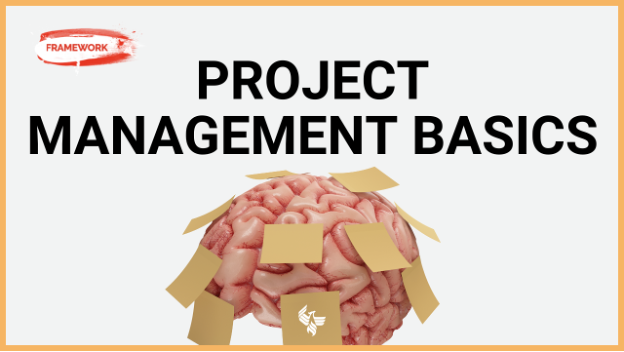Essential skills for project managers

Written by Michael Feder

Reviewed by Kathryn Uhles, MIS, MSP, Dean, College of Business and IT

Why are skills for project managers important?
Nine essential project management skills
Project management is a demanding profession that requires an individual to wear many hats. Those who are successful in this career can juggle multiple tasks and deadlines while maintaining a high level of quality control. Several skills make this possible.
1. Developing project costs and timelines
Every industry has its unique time-management process for developing project costs and timelines. Therefore, project managers must be familiar with the standard practices in their industry to create an accurate budget and timeline for their project. This process begins with understanding the scope of the project and developing a clear time-management plan. Once project managers understand the work that needs to be done, they can start to develop a budget.
Project managers are responsible for ensuring that the project stays on track and within budget. To do this, they must regularly review costs and timelines to identify potential issues. Then, if a problem occurs, they must quickly develop a solution that does not jeopardize the project’s success.
2. Using project management software
Project managers should also be able to use project management tools that help keep track of all aspects of the projects. This software can be used to:
- Create and track tasks — This ensures everyone knows their deadlines and responsibilities.
- Develop and track project budgets — This shows where money is being spent and identifies potential overages.
- Create and track project timelines — This shows where the project is behind schedule and identifies potential bottlenecks.
- Communicate with team members — This keeps everyone on the same page and addresses concerns team members may have.
Many types of project management software are available. The best one to use will depend on the specific needs of the project.
3. Conducting statistical analysis
Strong statistical analysis skills are key because they often need to analyze data to make decisions. For example, a statistical analysis might be needed to:
- Identify trends — Determining trends helps managers understand how the project is progressing and identify potential problems.
- Evaluate options — This can help choose the best course of action for the project.
- Make predictions — Forecasting can aid in anticipating difficulties and developing solutions ahead of time.
- Assess performance metrics – Learning from projects can help improve processes in the future.
Statistical analysis can be complex, but software programs can make it easier.
4. Managing and motivating teams
Every team is different, and it’s up to the project manager to develop leadership skills to determine what motivates each team member. This can be a challenge, but it’s crucial to find a way to keep everyone engaged and working toward the common goal. Positive team leadership can help push a project over the finish line and is an important soft skill for this line of work.
5. Tracking and measuring progress
Project managers must track the progress of their assignments. This allows them to identify areas where the project is behind schedule and make adjustments.
There are many ways to track and measure project progress, such as Gantt charts, delivery reports and key performance indicators (KPIs). Depending on the industry and the project, there may be other methods for tracking and measuring progress. Again, it’s up to the project manager to determine which methods and tools will work best.
6. Possessing wide-ranging knowledge of business practices
Since project managers often work with teams from different departments, they need a broad understanding of various business practices. This knowledge can be helpful when trying to find solutions to problems. Additionally, being familiar with different business practices can make it easier to communicate with teams in different departments.
Some of the business practices that project managers should familiarize themselves with are:
- Accounting — This is important for understanding financial reports and managing budgets.
- Marketing — This can help create promotional materials and market the project to stakeholders.
- Human resources — This is necessary for managing team members and dealing with personnel issues.
It's not necessary to be an expert in every business practice, but it's good to have a general understanding of the most common ones.
7. Understanding legal, ethical and regulatory considerations
Some of the legal, ethical and regulatory considerations that project managers should be aware of are:
- Privacy laws — If the project involves handling personal data, the it must be protected under privacy laws.
- Safety regulations — If the project team is working on a new product that will be sold to customers, the the product must meet all safety and quality standards.
- Environmental regulations — If the team works in a country with strict environmental regulations, the team must comply with those regulations.
Understanding legal, ethical and regulatory considerations is a complex skill that takes time and experience to master but is essential.
8. Interpersonal communication skills
Working with people is one of the big soft skills for project managers in their role. Some of the interpersonal communication abilities that are important are:
- Active listening — Listening to what others are saying and trying to understand their point of view.
- Empathy — The ability to see things from another person’s perspective and understand their feelings.
- Patience — Important for handling difficult people and managing conflict.
- Persuasion — Convincing others to support your ideas or decisions.
- Negotiation — Finding a compromise between two or more parties.
Developing effective interpersonal communication abilities takes time and practice, but it’s critical for everyone in a leadership position.
9. Implementation of business strategies
A project manager must be able to take a business strategy and turn it into a plan of action that will lead to success. This requires strong problem-solving skills and the ability to think creatively.
Some of the business strategies to be familiar with are:
- Marketing campaigns
- Product development
- Change management
How to develop essential skills for project managers
Often, project managers can develop the integral hard and soft skills they need to succeed by earning a degree or certificate. This path can help build the theoretical knowledge and skills for project managers necessary to lead a team effectively. Employers typically require job candidates to have a bachelor’s degree, often in a business discipline, as well as be certified in project management, from an organization such as the Project Management Institute (PMI).
In addition to formal education, another great way to develop essential skills for project managers is through continuing education and professional development courses. These courses teach new skills and stay up to date on the latest trends.
Managers can also develop project management skills through on-the-job experience and mentoring. On-the-job experience is an excellent way to learn firsthand, and mentoring can provide guidance and support from more experienced managers.
Project management is an ever-changing industry that necessitates continuous learning. To keep up, a project manager must be adaptable and eager to learn new things.
Learn more about skills for project managers
If you’re interested in learning more about skills for project managers, University of Phoenix offers online programs and courses, such as:
- Bachelor of Science in Business with a Project Management Certificate
- Project Management Certificate (Undergraduate)
- Single courses in project management
Contact University of Phoenix for more information.
Watch Project Management Basics: What You’ll Learn in an Online Bachelor’s Program

ABOUT THE AUTHOR
A graduate of Johns Hopkins University and its Writing Seminars program and winner of the Stephen A. Dixon Literary Prize, Michael Feder brings an eye for detail and a passion for research to every article he writes. His academic and professional background includes experience in marketing, content development, script writing and SEO. Today, he works as a multimedia specialist at University of Phoenix where he covers a variety of topics ranging from healthcare to IT.

ABOUT THE REVIEWER
Currently Dean of the College of Business and Information Technology, Kathryn Uhles has served University of Phoenix in a variety of roles since 2006. Prior to joining University of Phoenix, Kathryn taught fifth grade to underprivileged youth in Phoenix.
This article has been vetted by University of Phoenix's editorial advisory committee.
Read more about our editorial process.



Free Business Programs Guide
Make informed decisions with inside details about our business programs, the skills you’ll earn, the faculty who’ll teach you and more.
Thanks for requesting the Business Programs Guide
Download PDF now. Or access the link in our email.



